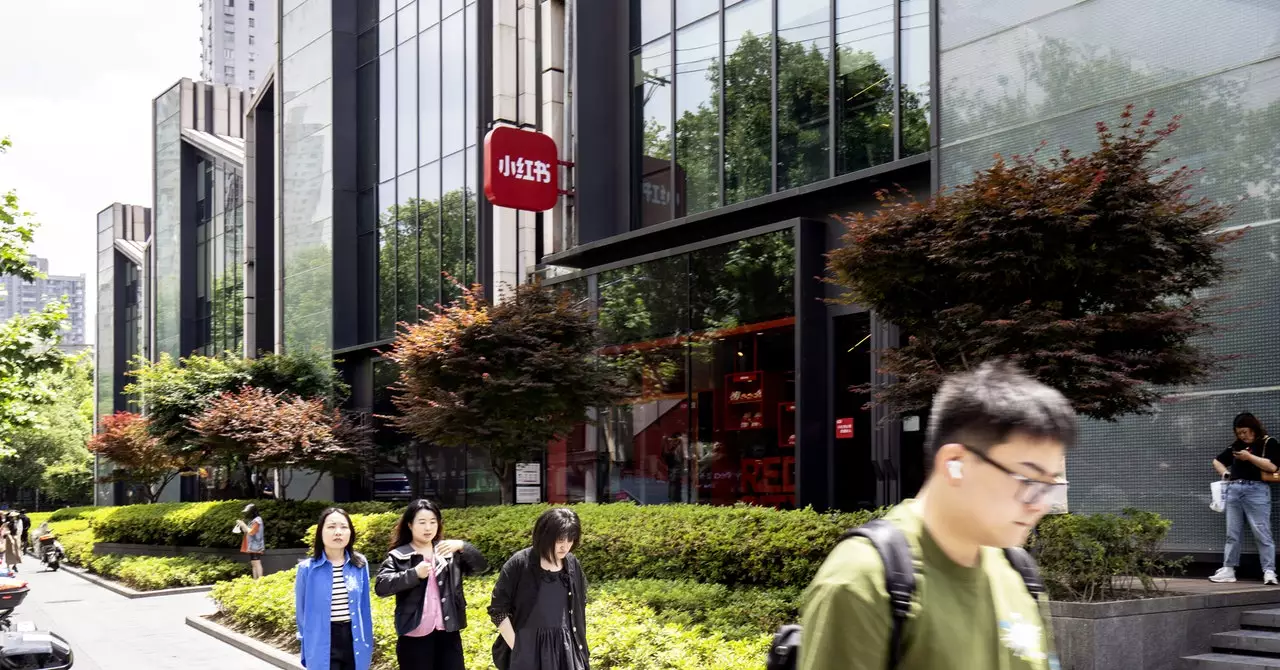In the ever-evolving landscape of social media, the Chinese platform Xiaohongshu, known internationally as RedNote, faces unprecedented challenges as it grapples with a sudden influx of new users, particularly from the United States. This surge comes in light of concerns over a potential TikTok ban in the U.S., prompting many American socially networked individuals to explore alternative platforms. As this wave of interest swells, Xiaohongshu is now under pressure to enhance its ability to manage English-language content effectively—a task complicated by the stringent regulations governing online communication in China.
Xiaohongshu’s rise in American users, reportedly numbering around 700,000 in just two days, has drawn attention to the platform’s content moderation capabilities. In response, several tech outsourcing companies in China have initiated urgent recruitment campaigns for English-speaking content moderators. Job postings from firms such as VXI Global Solutions and Jinhui Rongzhi Technology have appeared across recruitment portals. These businesses are seeking candidates to oversee and regulate content generated by foreign users, underscoring the platform’s pressing need for effective moderation amid its evolving user demographic.
The urgency of these hires is evident, with specific job listings indicating immediate requirements for candidates who can begin work within a matter of days. Salaries for these positions vary between 4,500 to 8,000 RMB (approximately $600 to $1,100), and applicants must demonstrate their proficiency in English. The necessity for swift onboarding reflects the demands imposed by the surge of new content, intensive oversight requirements, and a need for proficient language management.
Navigating the complexities of content moderation on Xiaohongshu is particularly daunting due to China’s regulatory landscape. The Chinese government, through its Cyberspace Administration, has indicated growing apprehension regarding the type of content being shared by foreign users. Recent reports suggest that officials have mandated that posts from U.S. users should not be visible to users based in China, citing concerns about politically sensitive material and the preservation of societal norms.
This political sensitivity creates a precarious balance for Xiaohongshu. Like its counterparts, the platform is legally obligated to remove content deemed inappropriate or subversive by the Chinese authorities. In a broader context, these regulations can contribute to a chilling effect on freedom of expression, particularly concerning topics that might challenge the government’s policies or public image.
The Role of Contractors in Content Moderation
To maintain compliance and manage content effectively, Xiaohongshu relies heavily on outsourced teams of contractors. These groups are instrumental in not only addressing day-to-day moderation tasks but also managing potentially contentious circumstances. Regular and crisis moderation strategies must be in place to protect users and comply with state regulations accordingly.
A heightened focus on how information flows through platforms like Xiaohongshu is warranted, particularly given the increasing presence of foreign nationals and the discussions they might initiate. Reports suggest that sensitive strategic interests of the state often dictate the flow of information, leading to systematic censorship of politically charged topics.
Implications for Freedom of Expression
The influx of American users into Xiaohongshu raises important questions about the implications for freedom of expression within the platform. As highlighted by experts like Allie Funk from Freedom House, the strict enforcement of content regulations dictated by the Communist Party can hinder open discourse. Potentially, this could result in the platform becoming more restrictive as it attempts to balance the influx of diverse user backgrounds while adhering to domestic regulations.
The challenge Xiaohongshu faces is emblematic of broader tensions in global social media networks governed by authoritarian regimes. The delicate nature of online discourse under such conditions amplifies the risks for users seeking to express themselves freely, particularly foreigners interacting with a user base interconnected by politically sensitive topics.
Xiaohongshu is at a crossroads, navigating both opportunity and challenge as it welcomes a growing number of users from across the globe. While its response in hiring new content moderators signals a proactive approach to addressing this newfound challenge, balancing user interactions with regulatory requirements will define its trajectory and reputation as a social media platform. Ultimately, how Xiaohongshu manages this unprecedented influx may very well shape the future of social media engagement in a landscape fraught with political sensitivities and regulatory scrutiny.

